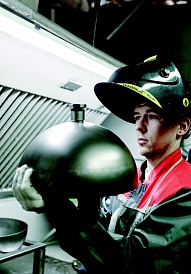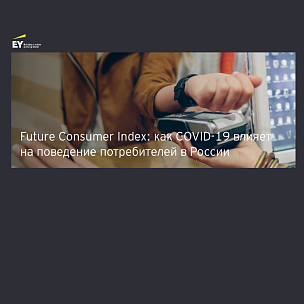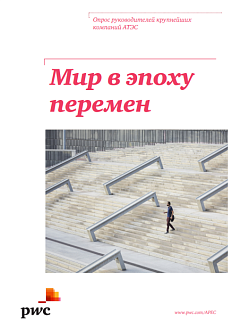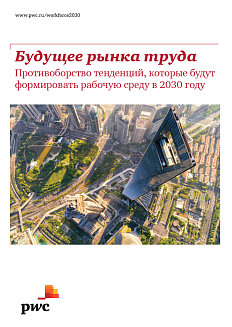Playing with fire by their own rules
Company and product:
Innovative Fire Safety Systems (ISP),a complete suite of services related to fire safety
Markets:
Russia, Kazakhstan, Belarus, Armenia, Moldova, Turkey, Kyrgyzstan, Vietnam, Denmark, Cyprus
Method:
go against the trend, you always find 10% of consumers who dont want what the market is trying to sell them
«At the Open Innovations Forum in 2015, someone asked us: Where do you buy the valves for your fire suppression cylinders?
We make them ourselves in Tolyatti. Well yes, you assemble the cylinders in Tolyatti, where are your valves from?
We make them ourselves in Tolyatti.
Thats impossible.
Why?
The quality is too high.»
Sergey Lektorovich, the founder and general director of Innovative Fire Safety Systems (ISP) Group describes a situation that caused him to first consider the possibility of expanding internationally. His incredulous companion was a manager for Rotarex, the leading European company producing fire suppression valves in Europe. «Thats when I thought, Well, if you think our stuff is too high quality, then youll hear of us yet,» laughs Sergey.
Lektorovich has a complicated history. In his teens, he was the leader of well-known youth street gang in Tolyatti. When he got older, he made his way into politics and even headed the local chapter of the Rodina political party. Finally, he found the place where he could work to his full potential in business.
He founded Innovative Fire Safety Systems (ISP) Group in 2009 to distribute national and international fire suppression devices. But in just a few years, he thought: why are we wasting money on marketing someone elses product when can we promote our own? No one in Russia had been making gaseous fire suppression systems. Lektorovich opened a factory in the Zhigulevskaya Dolina technopark in his own native Tolyatti and gathered a team of ex-AvtoVAZ engineers.
«Where are fire suppression devices usually produced in Russia? In the defence industry. Now, before us, no one was interested in leveraging the potential of the automotive cluster. Even though its very strong. In Tolyatti we have unique specialists that are capable of not just making a fire suppression valve, they can make a rocket,» says Lektorovich.
The national fire suppression system market was always conservative, to put it mildly. Its key players were ex-inspectors, who either keep their business running by leveraging their connections or worked for hire. As a result, real fire safety in Russia had long since become fiction. If you spend too much time talking to Lektorovich, you start to get paranoid. When he walks into any space, the first thing he does is start to convincingly explain why, if anything were to happen, no one would leave the place alive.
But when it comes to their strategy for taking a bite out of first the national, and then international markets, ISP goes stubbornly against the trend. «We operate on the same principles as Apple,» explains Sergey, «we may have a small share of the market, but our profit margins are the biggest. Yes, our systems are expensive. This is despite the fact that the world is tending towards the minimization of production costs, often by sacrificing quality. This is true of food, clothing, automotive construction everything. But this trend is why we have a chance to expand. We, on the other hand, come up with ways to make our product more expensive. Because youll always find a part of the customer base, Id approximate about 10%, that will prioritize reliability and quality and look at price second.»

Sergey Lektorovich, Founder and General Director of ISP Group
ISPs main product is the Zarya gas module, a cylinder with liquefied gas capable of holding 22.5 L. To a dilettante, this thing looks like a container for the intergalactic transport of an alien intellect. On the outside, its coated with an Italian paint made by the same producers who supply Lamborghini. On the inside, its coated with a special anti-corrosive substance. But ISPs primary competitive advantage is its IT platform, which not only allows the customer to efficiently purchase items and submit service requests, but to perform quality control on the product in real time. Imagine Apples ecosystem with an electronic ID for each product, except replace the iPhones with the Zarya, and youll get what Lektorovichs team has created. This is the kind of stuff that is particularly impressive to foreign partners,because no one in the West has even done anything like this yet.In the mid 2010s, the company quickly entered the regional and then federal markets. Today its clients include Sberbank, Gazprom, Mezhregiontransgaz, the FSB, Rosneft, and Russian Railways. And in 2017 they started expanding abroad.
In the CIS, the company first started making cold calls to try to break into a market, with middling success.What really made a difference was the unexpected effect of an instrument which the majority of entrepreneurs look down on official government support. The company was finding it impossible to break into the market in Belarus until the Samara Region Ministry of Economic Development helped them reach out to the countrys emergency response service and solve many problems. At the very least, a testament to the Zaryas trustworthiness is the fact that the Belarusian Nuclear Power Plant is equipped with this system.
A pilot project in Kazakhstan was originally less successful: the company started actively selling for a few months, but could not get results. That branch was closed and suddenly, a few months later, Kazakhstani clients came knocking at the companys door themselves. The conclusion: dont expect quick results in each new country. Now, Lektorovich plans for at least a year of fruitless efforts before expecting to see first sales.

From Togliatti with love: Russian firefighting systems winning the market from Kazakhstan and Armenia, to Vietnam and Cyprus
However, in more distant international markets, ISP uses a different strategy: its more profitable to sell fire suppression systems through large partners, who then take the complex responsibility of certification on themselves. Here, they were driven by a simple idea dont try to blaze your own path, leverage the official state support available to any entrepreneur. For example, work with the Russian Export Center. With its support, ISP is now forming their own pool of potential Western clients.«In order to receive the Made in Russia mark, we spent a long time getting certified by the REC, but it was worth it,» explains Lektorovich. «The centre subsidizes up to 80% of expenses related to participating in foreign exhibitions and, until recently, subsidized the funds spent on certification. Its a shame that they cancelled that measure, but I hope theyll bring it back.»
The companys breakthrough moment was their participation in last years IFSEC International in London. This is a key international platform for the entire industry, it brings together manufacturers and consumers of safety systems from around the world. As a result, the Zarya was able to enter the markets in Denmark, Vietnam, Kenya, and Cyprus. Until recently, 10% of the companys orders were for export, but now the figure is creeping closer to 30%. The entire ISP team is now actively learning English.
After the hype
Company and product:
Bitfury, a complete suite of blockchain technology services
Markets:
Russia, the USA, Hong Kong, the UK, the Netherlands, Georgia, Iceland
Method:
First all over the world, then everywhere
Bitfury was created in the early 2010s as Team USSR: it was created by young IT developers from the post-Soviet space. First, they were only involved in mining and operated in those places where politicians arent afraid of the word bitcoin. A Russian office was completely illogical, because mining still currently exists in a sort of grey area. But this kind of awkwardness is what pushed the company out on the international market, where it immediately became one of the leaders in a new industry.
Since 2011, the founders of Bitfury have become bitcoin millionaires, but they also understood that it was time to diversify their business. Thats how they created a new product: technological blockchain solutions for those who want to increase the transparency of traditional bureaucracy. They went to the worlds largest companies, the ones that suffer from a lack of monitoring. For example, they helped Coca-Cola clean up their global housekeeping. But even from the start, it was clear that another important group of clients were government institutions. The ones that were strongly in need of blockchain technologies, though they didnt always know it. Despite the fact that every government body is unhappy in its own way, their ills can be cured using more or less universal remedies. You just need to create them and offer them to the market.
«When we started thinking about where to sell blockchain, we immediately thought of Russia,» explains Bitfurys Head of Russian Operations Dmitry Ufaev. «We saw that the technologization trend was growing strongly among the political elite and large businesses. I worked in the Moscow government for four years myself and no how important IT is to a modern state.»
Which is why in early 2018, Bitfury opened an office in Moscow, an outpost to work with geographically and culturally similar countries. Bitfurys primary product became Exonum, a framework for creating blockchain projects. It was created as a result of work with the Georgian government, or, more accurately, with its cadastre.
«We can start with the fact that states are essentially registers and lists of rules. The most important things that any government apparatus does is support regulation and establish the work order,» continues Ufaev. «In many countries, these registers are stored either in vulnerable centralized databases or simply in paper form. A few years ago, one of the Caribbean states experienced a disaster. A hurricane came through and destroyed the land archive, blew the pages about, and no digital copies were available. Chaos and panic struck the country: it was unclear what belonged to whom.»
There is also another obvious problem, since each power shift brings new people to key positions. Suddenly youve got the tempting option of altering something somewhere. For example, in Georgia, peoples register entries sometimes disappeared. The new head might just say, «What you mean? This land has always belonged to Vakhtang.» And there would be nothing you could do about it. Unless you have blockchain. It allows this information to stay protected, to make sure it cannot be deleted.

Dmitry Ufaev, CEO of Bitfury Russia
Blockchains gradual penetration into all industries is both logical and unique: this is the kind of case where the technology dictates the logic by which its market develops. Take Synergy University for example: it has transitioned completely to issuing diplomas by blockchain, and now its possible to precisely ascertain whether a diploma was bought on the streets or fairly earned. Currently Synergy is alone in its forward thinking. But another 10 to 20 universities will follow its footsteps, and then it will be clear who can be trusted. And the rest will have to explain themselves: if theyre not doing anything, that means theyre covering something up.Another example: SETAM, the Ukrainian System of Electronic Trading in Seized Property, once received 3,000 cases that were filed with respect to 5,000 transactions. The auctions participants doubted the veracity of these cases. In order to open 3,000 cases, you need a whole army of lawyers. So Setam turned to Bitfury, and they moved everything to blockchain. And when a new case comes up, specialists have it covered: blockchain makes manipulating the results of an auction impossible. After that, there were no cases filed with SETAM at all. What a clear-cut performance example from three thousand cases to none.
Bitfurys market strategy is simple. Each new business case is a new language with its own particular pronunciation. But, having learned this language, you can speak with any businessmen in the industry, regardless of whether theyre from Zimbabwe or Sweden. For example, recently Bitfury studied the language of Russian Railways. «Together we developed a pilot version of blockchain integration. It was made taking the Russian context into account, but weve already sold it to railways in Kazakhstan, and now we are in negotiations with Canada,» says Ufaev. «Because almost all of the worlds railroads have the same problems: the rails belong to one organization, the cars to another, the movement of the cars is scheduled by a third, and they are serviced by a fourth. Blockchain boils all of this down to a common denominator. Weve already learned over forty languages used in various businesses. And now we just broadcast them around the world.»

Blockchain Technologies: Real Economic and Business Assistance or a New Matrix?






